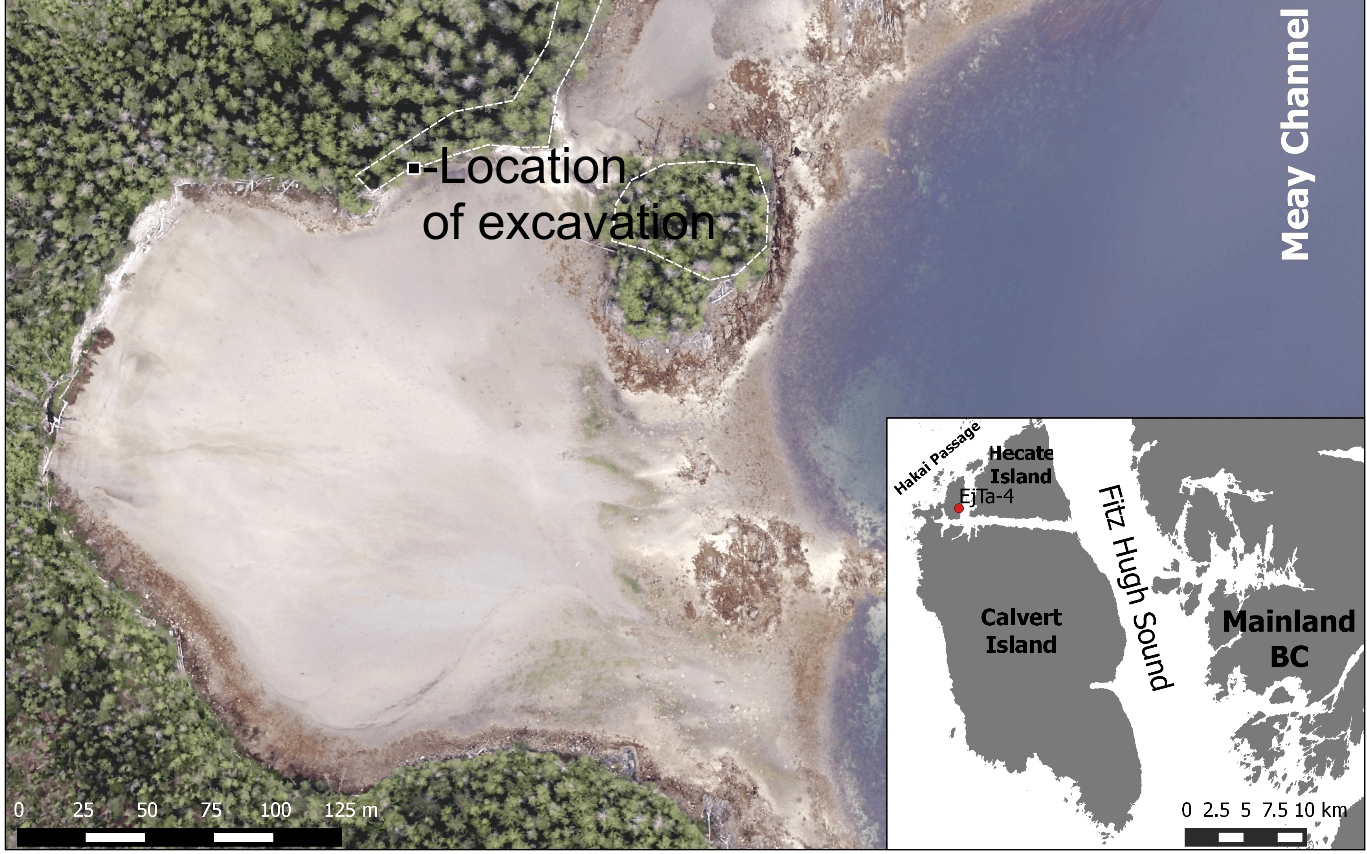Prehistoric footprints found on BC island
Human footprints from thousands of years ago are rare finds. “Leaving footprints in the sand” is a metaphor for the ephemeral nature of some human activities. But a group of researchers has recently released their findings on their discovery of a group of footprints made by humans some 13,000 or so years ago, on the shores of a cove on Calvert Island – the first major island off BC’s coast north of Vancouver Island and north of Cape Caution. The cove appears to be on the western shore of Meay Channel, facing Hecate Island, and has a clam bed nearby. It’s a sheltered location.
The find is exciting not only for its rarity, but also because it provides additional proof that the predecessors of BC’s First Nations were living at or near this location on BC’s coast at the end of the last glacial period – the “terminal Pleistocene Epoch.” Aside from middens of shell and some stone artefacts, such evidence is hard to find, given the biodegradable nature of most of the early settlers’ structures and other works.
There was a piece of wood embedded under the heel mark of one of the 29 footprints found, and that bit of wood was radio-carbon dated to a little over 13,000 years ago. Many will continue to theorize about the way people first arrived on the BC coast – did they use a land bridge? Did they use some sort of watercraft? Did they come from Asia? More archeological finds may help to suggest more probable answers to those questions, but these footprints at least tell us that people were there, in that cove, all those generations ago.
The article published in PLOS One, by Duncan McLarn, Daryl Fedje, Angela Dyck, Quentin Mackie, Alisha Gauvreau, and Jenny Cohen, details the discovery (as with many discoveries, they were looking for something else at the time), the methodology and analysis, the findings and their significance. Readers interested in the details can read the original full-length journal article here, and see the diagrams and the photos taken:
http://journals.plos.org/plosone/article?id=10.1371/journal.pone.0193522#pone-0193522-g003
























